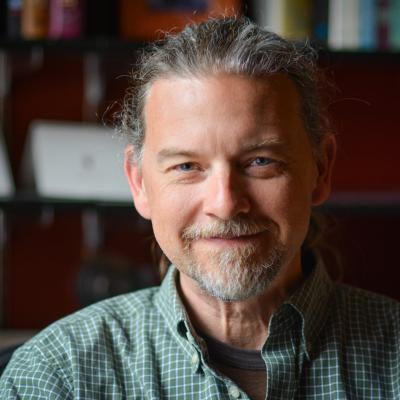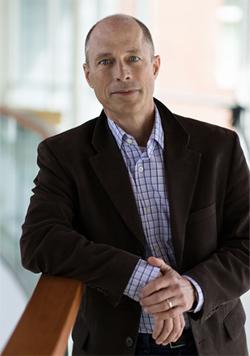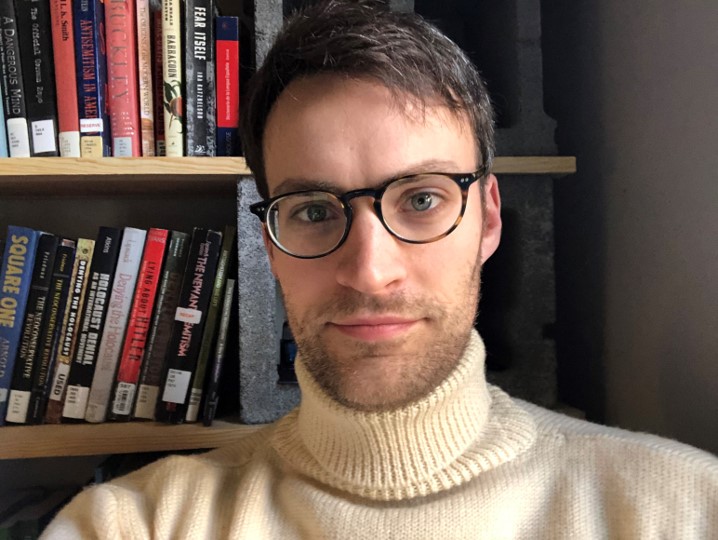The seven-week, interdisciplinary, small-discussion courses that comprise the Engagements curriculum are divided into four domains: Engaging Aesthetics, Engaging Differences, Empirical and Scientific Engagements, and Ethical Engagements. The Engagements curriculum was first offered as an experiment in 2017, but was voted by faculty to be the curriculum for all first years going forward.
Engaging the World
Engaging the World

s classes wrap up this December, among them will be a series of courses in the Engagements curriculum that bring first-year students out of their worlds and into the global. “A global frame is where first-year students are going to spend the rest of their lives,” points out Brian Owensby, a Professor of History who taught the Engagements course 'Climate Change and the History of the Future.' “It will be impossible to shrug off wildfires in the US west, droughts in Europe, or rising sea levels in virtually all coastal cities. Refusing to look will not diminish the suffering of those who are displaced by climate, even though they have done the least to cause the crisis that will turn their lives upside down.”
“Ideally, the Engagements Curriculum approaches education with a broad enough set of goals that virtually any specific discipline or specialty can be viewed through a global lens,” says Jim Coan, co-director of the College Fellows Program, which provides the instructors for the Engagements courses. “Ultimately, these ways of thinking and, yes, engaging with the world, in all its complexity and wonder and even heartbreak, should enrich an individual’s life and the lives of those with whom they interact.”


Owensby adds that teaching an Engagements course often helps an instructor branch out from the opportunities presented by department-based courses and work across disciplines. “Something about where we are in the world today seems to demand a broad perspective, a gathering sense that there must be different ways of imagining global humanity at a time of emergency,” he adds.
Some of the courses offered this semester through the Engagements curriculum were 'Covers, Karaoke, and Memes: Imitation in Music' taught by Michael Puri, 'Embracing the Question Mark' with Olivier Pfister, and 'Food for Global Feminist Thought' by Francesca Calamita. The 2023-2024 academic year will be the first year that all first year students will take the Engagements curriculum.
David Walsh taught 'Hateinnany: Fascism, Antifascism, and the Global Far Right' this fall. He explained that his globally-oriented course was different from the excellent offerings already available at UVA as he deliberately de-centered the Nazis in the curriculum. “There are many wonderful courses here at UVA – not the least of which is Kyrill Kunavich’s and Manuela Achilles’ class on fascism offered by the history department – that cover that material in detail,” he added.

Walsh focused on the global vision of the far right in Europe and North America in the 19th and 20th centuries – this necessarily means engaging with concepts like empire, race, capitalism, and world systems in general. The Engagements offer a special opportunity to engage students who might not encounter these issues in the rest of their specialized education. “Most of my students are not going to be history majors, and for some this might be the only opportunity they have to grapple with the difficult moral, ethical, and historical concepts we discuss in class,” says Walsh.

“It is important to be enriched by new languages and cultures asap, to compare differences and similarities and learn from them,” says Francesca Calamita, who taught ‘Food for Global Feminist Thought.’ “In my class students take a virtual trip around the world to talk about food and gender in a feminist framework; for example, we talk about New Zealand and Maori culture in the context of the TV series "The Crown"; but we also talk about Japan while studying Amélie Nothomb's Life of Hunger and Italy while reading Igiaba Scego’s short stories on identity and migration,” says Calamita. This in-depth exploration of the material is allowed by the small, seminar-style format of the Engagements courses, which average about 25-40 students per course, the smallest class size available for first-year students.
“At rock bottom, a liberal education is about integration and exploration of topics, disciplines, and experiences such that any ultimate life course, professional or personal, is enhanced,” said Coan, adding that the Engagement courses are compatible with any of the College’s majors or academic programs at UVA, preparing the students for successful years ahead.



